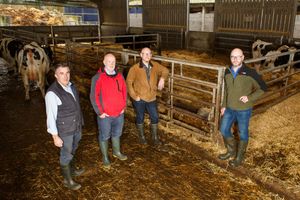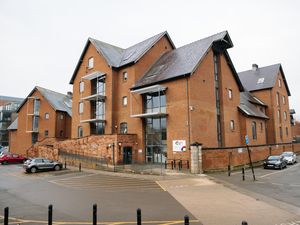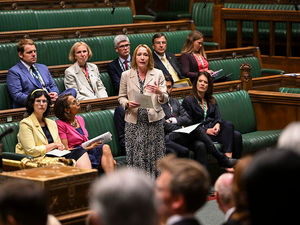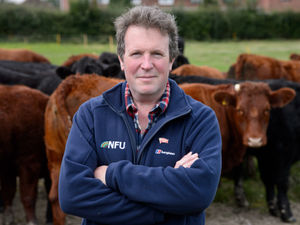Welshpool project could hold key to carbon capture
A ground-breaking project to turn cow muck into the carbon capture fertiliser of the future could give farmers a much-needed new source of income.

A team led by consultant John Owen, of business consultancy firm Lafan alongside experts at Coleg Sir Gȃr in Carmarthenshire, is developing a process to create a carbon storage substance from livestock poo.
The process is currently being tested at green energy firm Onnu’s new bio-technology site at Guilsfield, near Welshpool, and the results could open up significant opportunities for the farming sector.
Biochar, a super charcoal, can be made by heating any biomass – usually plant-based – without oxygen but the team led by John have developed a process to create it from cattle slurry.
It can store carbon for thousands of years and could be worth millions to the Welsh agricultural economy as major multi-national companies pay for carbon offsetting to reach their net zero goals.
John retired from the staff at Coleg Sir Gȃr, this year to join Lafan as a Lead Consultant and is now working alongside former college colleagues to develop the system.
Lafan’s efforts have just won a £50,000 research award for Innovations in the Net Zero Industry from Government agency Innovate UK and they are currently waiting for the process they have developed to be tested and to produce Biochar.
John and his team, who are based at the college’s Gelli Aur Farm, near Llandeilo, where the project to create Biochar will be co-ordinated by Lafan and is being backed by leading Welsh food wholesaler Castell Howell Foods.
He said: “As yet Biochar has never been produced from livestock slurry which is 95 per cent water but separating the solids and the dewatering processes we have developed at Gelli Aur have made that possible.
“The residue could be heated at high temperatures, over 400C, to turn it into Biochar, pure carbon which can be stored below ground in a carbon capture scheme.
“In this form Biochar stores carbon for thousands of years but it can also provide a host of agricultural and environmental benefits, as a soil enhancer and growing medium, an animal feed supplement or as a slurry additive to reduce methane emissions.”
They are currently waiting in a queue for the use of a processing plant in Welshpool where the first Biochar from cattle slurry will be produced but John and his team are optimistic and believe their new material has massive potential to benefit rural Wales.
He said: “Slurry is stored on farms for use on fields but from this month new regulations have come into force prohibiting the spreading of slurry during the designated closed period but if instead it is used to produce Biochar there are many more lucrative options.
“Microsoft and other big multi-nationals are investing billions in carbon capture and this could provide a new income stream for farmers – there won’t just be tankers calling to collect milk but also to take slurry to be processed which will provide a new income stream.
“Castell Howell Foods, one of the UK’s leading independent food wholesalers, is supporting us because they are also looking at ways of reducing the carbon footprint of their business in the food supply chain.
“Every business in Wales has a target to achieve Net Zero and those that achieve that first stand to benefit the most.
“Businesses are looking to do that through carbon credits and the income from that could be massive and the whole supply chain benefits.
“We believe the process to create Biochar will work – we just have to see how the economics of the process stack up.”
Geraint Hughes, Lafan Chair and Agri-Food Lead Consultant, said: “There is a long way to go but Biochar could be really important and we’re delighted to be working with Innovate UK in Wales on a Welsh project with a Welsh company with Welsh partners.
“Innovation is key to everything we do at Lafan and what we like about this project is that it has the scope to respond to real life challenges on Welsh farms and beyond to the global challenges of carbon capture and renewable energy.
“We believe that this project shows that innovation is alive and well in rural Wales and that something we are doing in our own backyard could have global ramifications.”




